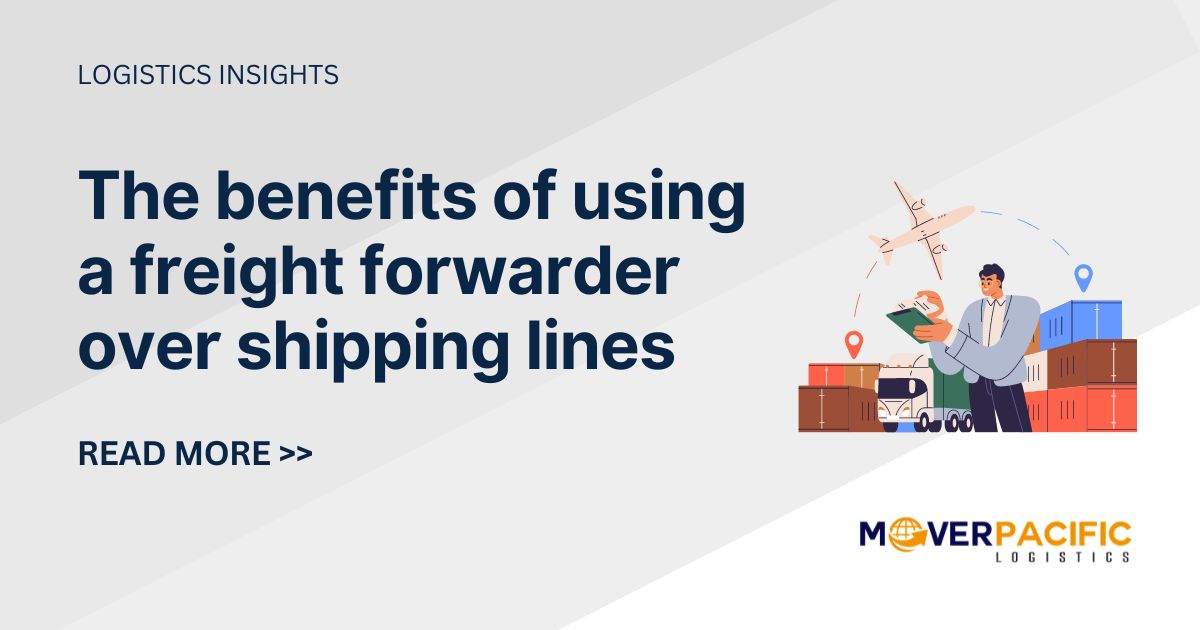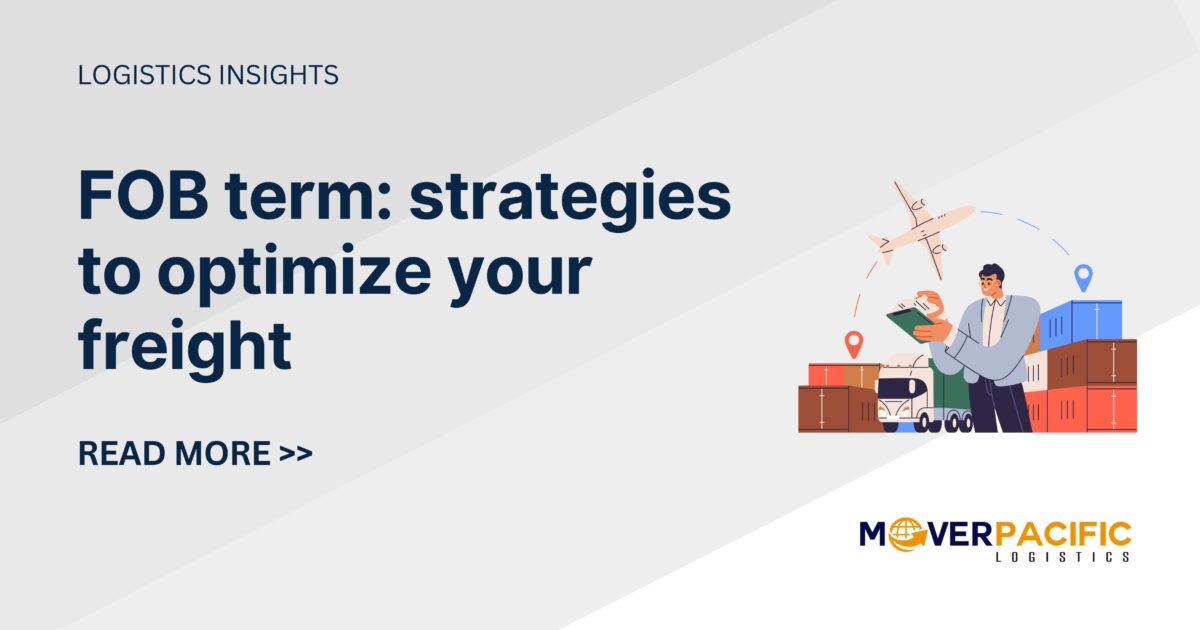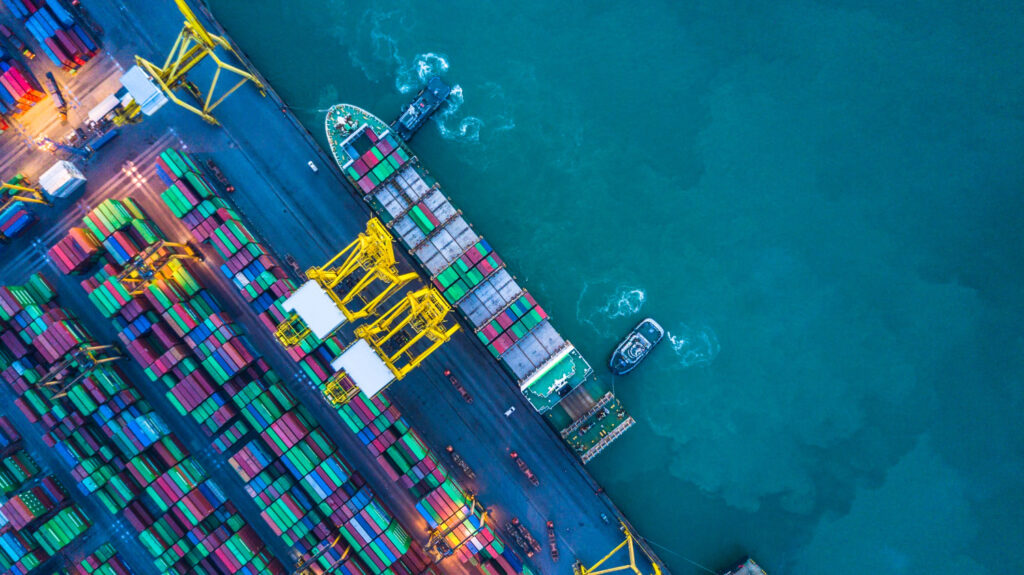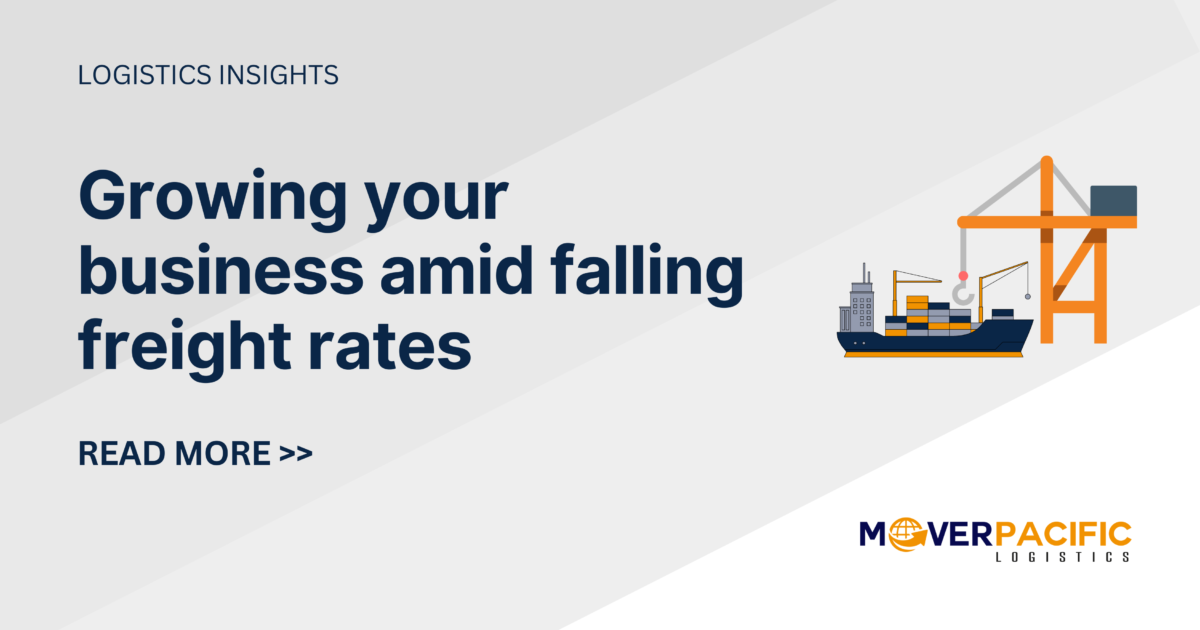You know shipping your goods can be complicated. Between rates, paperwork, and regulations, it is a lot to navigate alone. That is where freight forwarders come in handy. They act as your personal logistics department, handling everything from booking cargo space to preparing customs documents.

With their expertise and relationships with carriers, freight forwarders can get you better rates and service. In this article, we will break down the key benefits of using a freight forwarder over going directly to a shipping line. From simplicity and savings to reliability and communication, we will show why you are better off having a pro in your corner when shipping your goods.
What is a freight forwarder and how do they work?
Freight forwarders act as intermediaries between carriers and businesses needing goods moved. In simple terms, they manage the logistics of transporting your cargo from point A to B. Freight forwarders can handle either a portion of your supply chain or even the entire supply chain operations who are commonly called as third-party logistics or 3PL.
They handle all the details
Freight forwarders coordinate everything involved in the shipping process so you don’t have to. They will arrange things like:
- Finding the best carrier and route for your needs
- Booking space on ships, planes or trucks
- Preparing and processing shipping documents like bill of lading
- Ensuring your cargo meets all regulations and is properly packaged
- Handling customs clearance and paying any duties or taxes on your behalf
- Tracking your shipment and providing updates on its progress
- They have strong relationships and negotiating power
Freight forwarders have close ties to various transportation companies which allows them to get you the best rates. Their high volume of shipments also gives them more leverage to negotiate lower prices. These savings can then be passed onto you.
They simplify international shipping
If your shipping goods internationally, a freight forwarder is essential. They are experts in global logistics and understand all the complex rules around customs, security, and international trade regulations. They can properly classify your goods and determine which documents are needed to legally and efficiently ship your cargo across borders.
Using a freight forwarder over dealing directly with carriers simplifies the shipping process and gives you more control over your supply chain. Their expertise and connections allow them to provide faster, more streamlined and cost-effective solutions for moving your goods internationally. For most businesses, the convenience and economies of scale they offer make them an invaluable partner for shipping and logistics.
Top 5 benefits of using a freight forwarder over shipping lines
Going directly to a carrier may seem like an easy option, but freight forwarders offer major advantages. Here are five key benefits of using a freight forwarder over shipping lines.
Better rates through volume
Freight forwarders have higher booking volumes which gives them leverage to negotiate lower shipping rates. They pass on a portion of the savings to you. Shipping lines typically do not offer discounted rates especially to smaller shippers.
Payment term to free up upfront cost
One of the best benefits of choosing a freight forwarder over carrier is payment term. Shipping lines usually do not have payment term available to shippers unless your volume is significant. A freight forwarder typically offers a minimum of 15 days payment term to customers at all sizes.
Door-to-door service
Freight forwarders offer door-to-door shipping, handling the entire journey from pick up at origin to final delivery at destination. They oversee all legs of transport and any intermodal transfers required. Shipping lines only get your cargo from port to port, leaving you to arrange any inland transportation. Although some shipping lines have door to door service, however the cost to avail this end-to-end delivery is expensive than a freight forwarder can offer.
Consolidation services
Freight forwarders can consolidate multiple small shipment into a single larger shipment to reduce costs. They then deconsolidate shipments at the destination and deliver each shipment to its final address. Shipping lines typically do not have consolidation and deconsolidation service.
Flexible shipping options
Freight forwarders provide access to a range of carriers and shipping methods (air, ocean, rail, or truck) so they can find the option that best suits your needs based on cost, speed and cargo type. Shipping lines only provide the shipping methods they directly operate.
Using a freight forwarder over a shipping line for your cargo needs is a smart choice. Let the experts handle the details so you can focus on your business. Entrusting the logistics to a qualified freight forwarder frees you up to focus on your core business while enjoying exceptional service and value.
This article first appear in Explore Supply Chain website.





